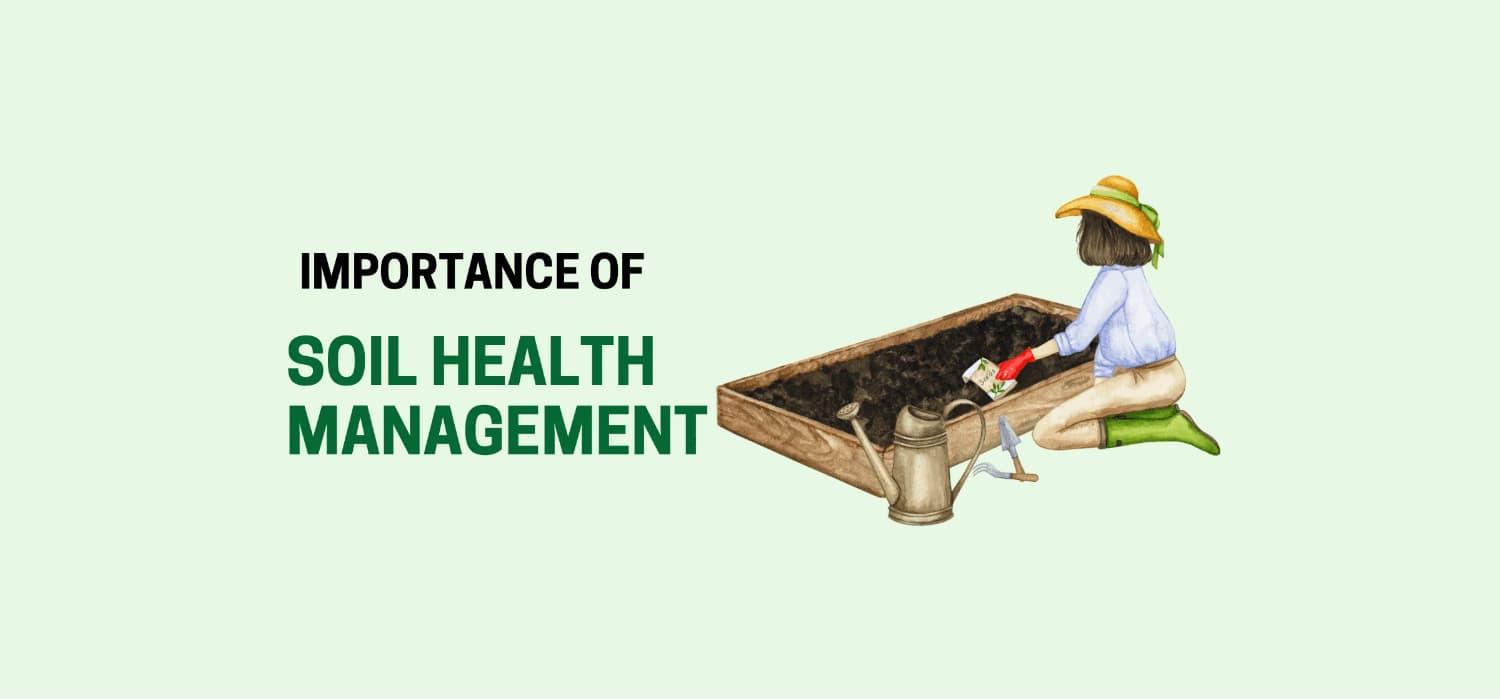Cart (0)
No products in the cart.

Introduction
In the heart of India, where agriculture is not just an occupation but a way of life, the importance of soil health management cannot be overstated. Indian farmers have been tilling the land for centuries, providing sustenance to millions and contributing significantly to the country's economy. However, the very foundation of their livelihood, the soil, is under constant threat. This article delves into the crucial significance of soil health management for Indian farmers and why it's a matter of survival for both the land and its cultivators.
Over the years, India has witnessed unprecedented levels of soil degradation. The rampant use of chemical fertilizers and pesticides, coupled with improper land management practices, has taken a toll on the soil's health. Excessive irrigation, mono-cropping, and deforestation have accelerated erosion and nutrient depletion, making the situation dire.
The deteriorating health of the soil directly impacts crop yield. Indian farmers have noticed diminishing returns on their efforts, with crops being more susceptible to diseases and pests. This not only affects their income but also poses a threat to food security in the nation.
Soil health management is the key to sustainable agriculture in India. It involves a holistic approach to soil care, encompassing practices that enhance soil fertility, structure, and overall health. By adopting sustainable methods, farmers can break free from the cycle of soil degradation and maintain consistent crop yields.
One of the pillars of soil health management is the adoption of organic farming practices. By reducing the use of chemical inputs and embracing organic alternatives, farmers can rejuvenate their soil. Organic matter improves soil structure, moisture retention, and nutrient availability, ensuring healthier crops.
Crop rotation is another essential technique in soil health management. It prevents soil exhaustion by diversifying the types of crops grown on the same land. This practice helps restore nutrients, reduce soil-borne diseases, and enhance overall soil quality.
Recognizing the urgency of the soil health crisis, the Indian government introduced the Soil Health Card Scheme. Under this scheme, farmers receive personalized soil health cards that provide information about the nutrient status of their soil and recommend suitable measures for improvement. This initiative empowers farmers with knowledge and tools to manage their soil better.
To encourage organic farming, the government offers subsidies on organic inputs and provides financial incentives to farmers who make the switch. This not only promotes healthier soil but also aligns with global efforts for sustainable agriculture.
In conclusion, soil health management is not a luxury but a necessity for Indian farmers. It is the linchpin for ensuring food security, increasing agricultural productivity, and safeguarding the environment. As Indian agriculture faces numerous challenges, from climate change to shrinking arable land, nurturing the soil becomes paramount. By adopting sustainable practices, leveraging government initiatives, and prioritizing the health of their land, Indian farmers can pave the way for a prosperous and sustainable future.
Unhealthy soil may exhibit signs such as poor water retention, nutrient deficiency, erosion, and a decline in crop yield. It may also have a compacted or crumbly texture, which can hinder root growth.
Farmers can assess soil health by obtaining a Soil Health Card through government schemes or by conducting soil tests through certified laboratories. These tests analyze key parameters like pH, nutrient levels, and organic matter content.
Yes, there are several natural remedies for improving soil health, including the use of organic compost, cover cropping, mulching, and practicing crop rotation. These methods enhance soil fertility and structure without relying on chemical inputs.